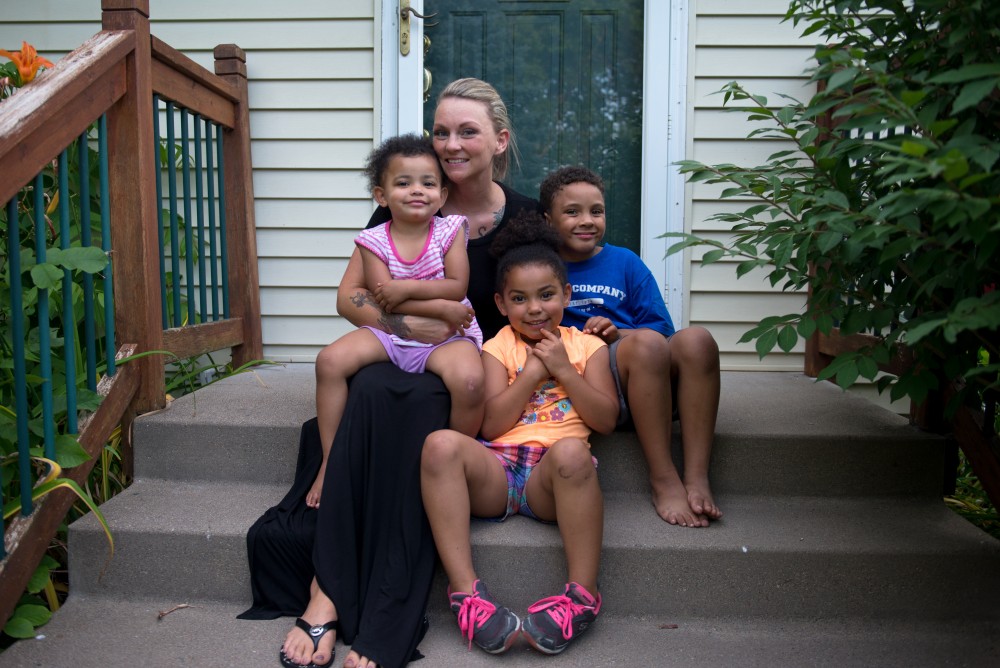In 2011, Brittany Seaver gave birth to her third child. It was her first while in prison.
She was looking for support during her pregnancy, but the confines of prison made support difficult to find. Two days after giving birth, the two were separated — the baby went to Seaver’s mom, and Seaver went back to her prison cell.
“It’s a super dramatic, scary situation,” Seaver said.
Raelene Baker became Seaver’s support. She helped Seaver through the process, comforting her with emotional care.
After the birth, Baker helped Seaver keep a relationship with her newborn.
“She was involved in such a crazy part of my life, and she really touched me emotionally. I’ve always held a really special place in my heart for her,” Seaver said.

Baker is a doula and the project coordinator of the Minnesota Prison Doula Project, one of the first and longest running groups in the U.S. which gives birthing and motherhood support to women in prisons and jails.
Doulas are women who provide prenatal education and group parenting classes to incarcerated mothers and mothers to be. They assist with births and help sustain relationships between the mothers and the newborns.
This support comes in many forms and can be as simple as a blanket that smells like the mother to help a baby feel closer to their parent, Baker said.
The MPDP is partnered with the University of Minnesota’s Center for Urban and Regional Affairs, and sends around 25 doulas to five regular institutions around the state, along with others less regularly.
Their work comes as women and mothers are being incarcerated at increasing rates.
Rebecca Shlafer, research director of MPDP and assistant professor in the University’s Department of Pediatrics, said the incarceration rate for women has risen drastically in the past 30 years, and most of the women are parenting age.
As a result, 77 percent of female prisoners in Minnesota are mothers to young children and 5.6 percent of female prisoners report pregnancy. Most of these women are their children’s primary caregivers, Shlafer said.
This state number outpaces the national average of 62 percent motherhood rate for incarcerated women.
According to Shlafer’s research, 16,248 children in Minnesota have an incarcerated parent. These kids face higher risks of developing mental illness and substance abuse later in life, she said.
The MPDP started in 2010, after Project Director Erica Gerrity regularly volunteered at the Shakopee Correctional Facility and began to notice inmates struggling and stressed with pregnancy.
In 2011, the group’s first full year, doulas attended 17 births. The number has since risen and by 2016, the group attended 32.
“Our project is a little tiny example of how we can think differently about the intergenerational implications of incarceration for families,” Gerrity said.
While prisons do offer healthcare services to pregnant inmates and new mothers, she said the disadvantages to being a mother or pregnant in prison are clear.

Inmates are unable to choose their own care provider or have their family present when they deliver their child. Often they have difficulty getting access to OBGYN doctors and midwives, Gerrity said.
“Our goal is to support them to have healthy pregnancies, healthy parent-child relationships and to be better-prepared moms upon release,” Shlafer said.
Tracy Beltz, warden of the Shakopee Correctional Facility, said giving access to doulas took them out of their comfort zone.
The doulas had to get clearance to touch inmates, which is typically against regulations, she said. “It was a risky endeavor on the part of the facility.”
Beltz said while Shakopee’s facility does better than other prisons in providing for parents and their kids — they don’t shackle pregnant inmates and they offer extended visits for kids to interact with their parents — the partnership with doulas is “extraordinarily beneficial.”
The project’s main focus is on pregnant mothers, but it also provides post-birth support and helps mothers develop relationships with their children, Shlafer said.
The project hopes to expand into a national nonprofit organization, and has already started to expand services into states like Wisconsin and Alabama.
After Brittany Seaver was released from Shakopee, she had a fourth child with Baker’s help once again.
Now, Seaver herself hopes to one day be a doula for other mothers.

















